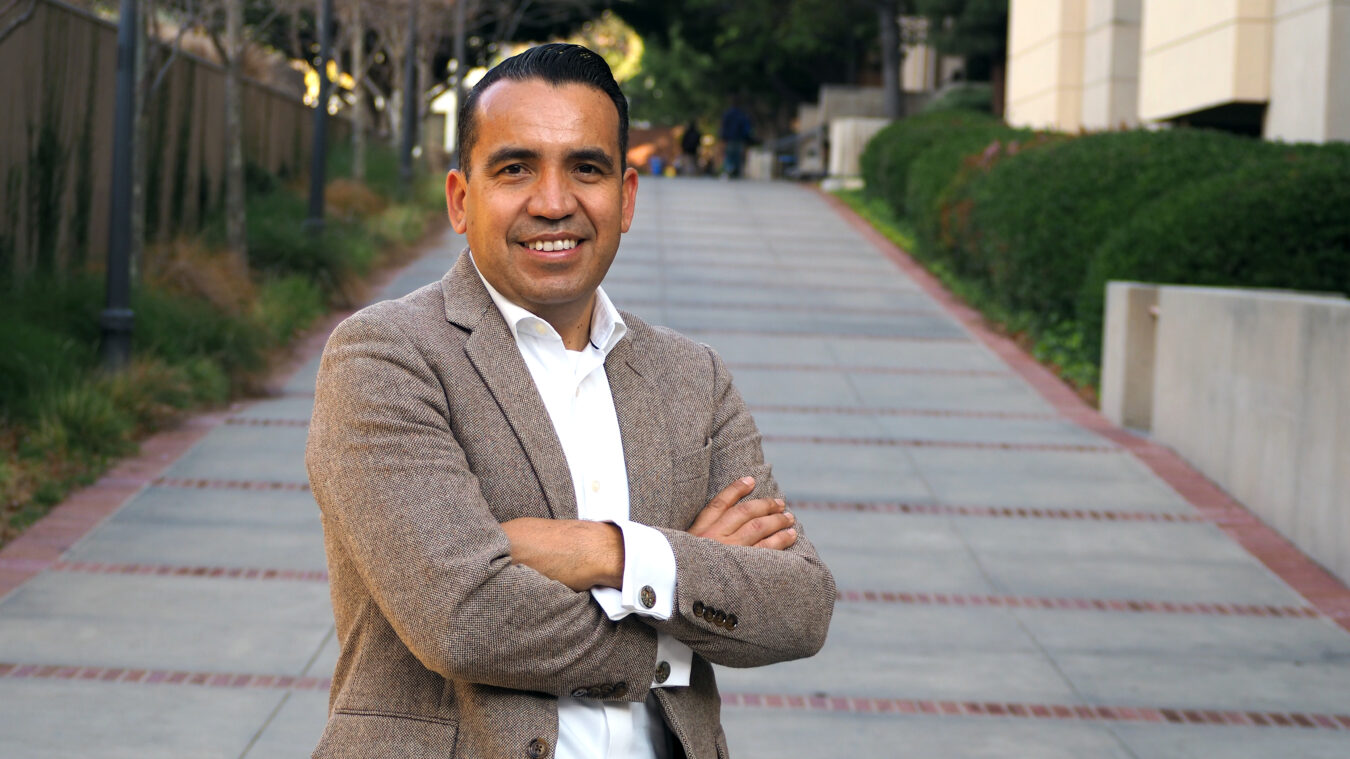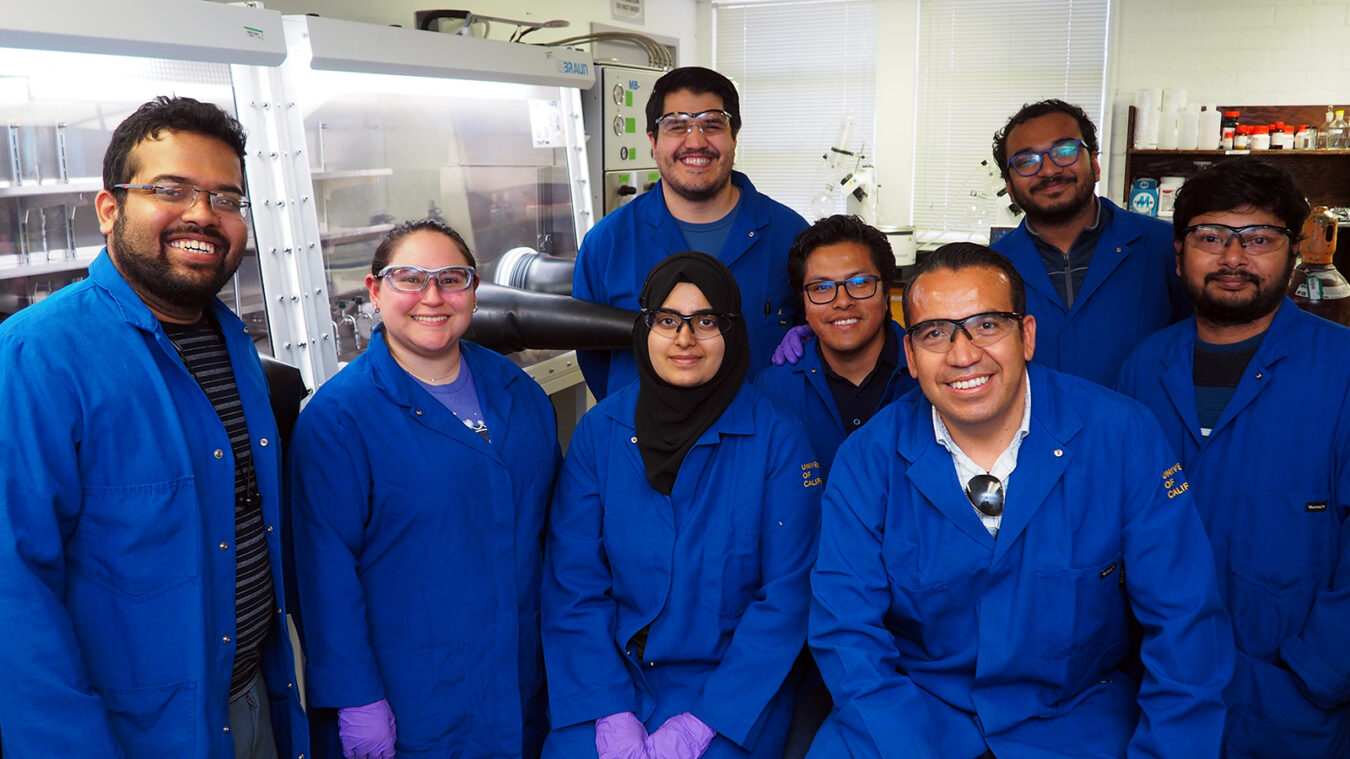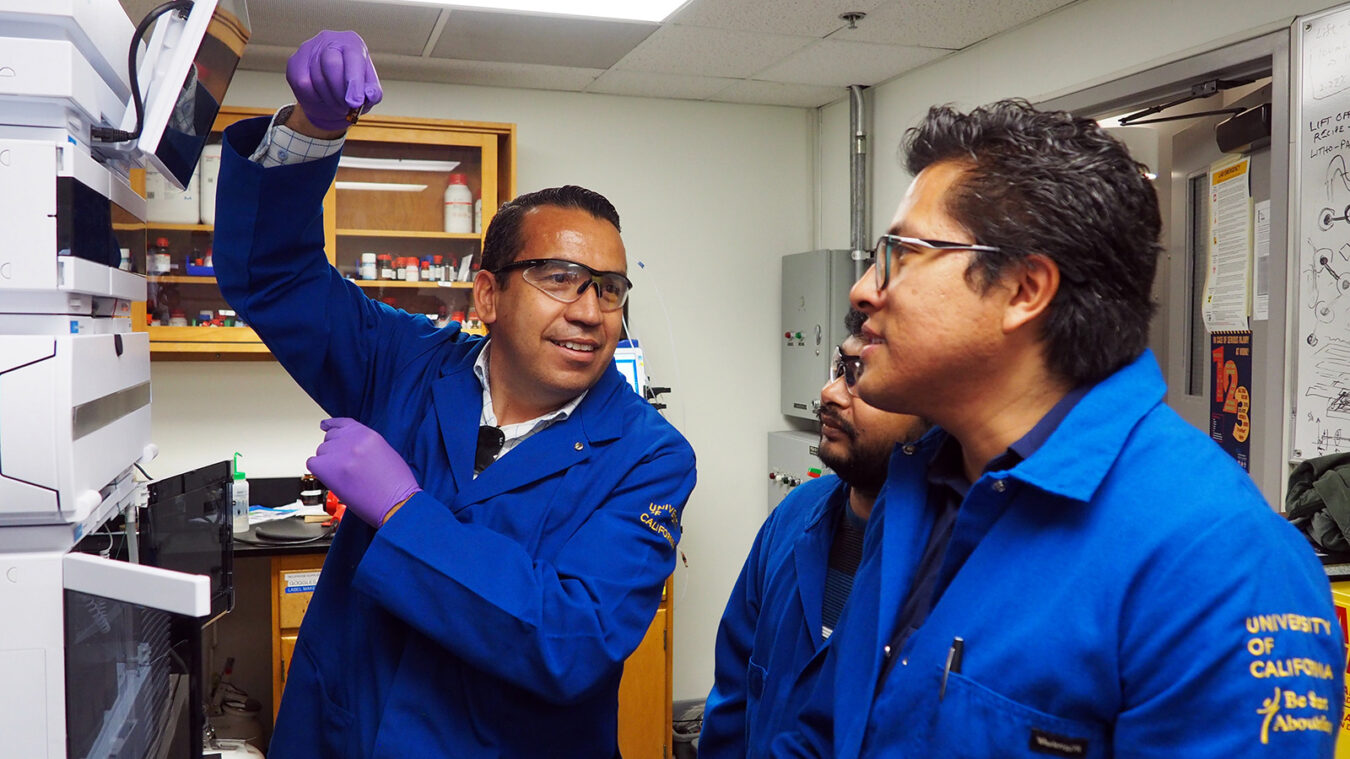At seven years old, I was the youngest chivero in Rancho Los Prietos, in Guanajuato, Mexico. As a proud and effective young goat herder, my day started early. Six days a week I would wake up at 4am. Walk over to my grandfather, Papa Pepe’s house. Have some coffee with galletas with Papa Pepe and my grandma Mama Ruma. Then Papa Pepe and I would take the 150 goats to the countryside before dusk.
As I said, I was an effective goat herder and in my young mind, that was my future. My family must have seen the same thing because two years later, when they decided to immigrate to California for better opportunities, it was determined I should stay in Rancho Los Prietos to help my grandparents and their goats.
Of course, since you’re reading this now, you can probably assume that is not where my journey ended. My family was very big, and my parents couldn’t bring all the children in one trip. When my father returned a few months later to get the second group of my siblings, he came to say goodbye to me and noticed a small detail that made him change his mind about my fate. Papa Pepe had recently bought shoes for me and my cousin. But my cousin’s shoes were new and nice, the ones he had got for me weren’t. My father realized if I stayed in Mexico, I wouldn’t be supported as I deserved. So, he scooped me up with my other siblings and, at the age of 9 years old, I was off to Sacramento, California.
My name is Osvaldo Gutierrez and I am a professor of Organic Chemistry at UCLA, but I wasn’t always sure I would make it.
Living in Sacramento as an undocumented immigrant in the early 90’s was not always easy. Like now, there was a lot of anti-immigrant sentiment. The notorious Proposition 187 encouraged the state to set up screening systems and prohibit illegal immigrants from using non-emergency healthcare and public education.
My biggest fear, which I worried about constantly, was returning from school to find someone in my family had been deported. Despite those fears, in Sacramento I saw many opportunities to improve my family’s standing. I know it is a cliche but America really was – and still is – the land of opportunity. I worked during the summers as a landscaper starting at age 12, six days a week ten hours a day. During the school year, I worked Saturdays to help out my parents and siblings. There is no other way to say it, we worked very hard…and we were very poor.
It was school that finally opened my eyes to real opportunity. I realized that I enjoyed reading and math. I found a strength in math and it gave me a sense of belonging in these classes. Through the California public school system, I saw a path to a future that I had never dreamed was possible back in those fields in Rancho Los Prietos with the goats.
I decided then, in middle school, that I would achieve something no one in my family and no one from the entire village of Rancho Los Prietos had ever achieved: graduate high school and attend college.
I decided then, in middle school, that I would achieve something no one in my family and no one from the entire village of Rancho Los Prietos had ever achieved: graduate high school and attend college. I dreamed of one day returning to visit Papa Pepe, this time as a doctor. Every time one of my older seven siblings dropped out of high school to start working, it motivated me even more. I felt like, if I could do it, I could pass the “recipe” down to my six younger siblings and could change the fate of our family in this new country.

Despite being a recent immigrant with uneducated parents, I had close to a 4.0 GPA in high school. But when a counselor told me that for students like me, who are undocumented, the chances of going to college were practically impossible, I felt defeated. I went on a mission to find someone, anyone, who was undocumented and also in college — I found no one. My grades reflected my loss of motivation. While barely making it through high school, I started a landscaping company, worked as an industrial baker, and even did a little professional boxing to explore alternative careers.
Right before graduating from high school, I learned of the opportunities at junior college! The fact that I didn’t know about it earlier is one of the reasons I feel so passionate today about helping others who are on similar paths.
I immediately enrolled in Sacramento City College while continuing to work, and after five years was accepted to UCLA. For most people, that would be a dream come true and an immediate yes, but I was apprehensive. Los Angeles was expensive, and far away from my family in Sacramento who needed my help. More ominously, it was a lot closer to the border. Luckily, there was one person there who met with me and immediately changed my mind. Professor of Chemistry, Miguel Garcia-Garibay.
Professor Garcia-Garibay is also from Mexico and he was kind enough to give me a tour of the chemistry department. I was inspired by meeting someone that looked like me and that came from a similar place like me. It may seem insignificant to many but experiences like this are hugely impactful.
He told me that if I worked hard at UCLA then, because of the reputation and rigor of the classes, I would likely be accepted to a medical program…all I had to do was excel. I made the decision and was soon enrolled.
The rigorous schedule was challenging for any student. But for someone in my situation, without family support or legal protections, it was even harder. For a time, I was going to school despite not even having a roof over my head. On top of that, my legal status would once again throw a wrench in my plans. I realized that it was almost impossible to get into a medical school as an undocumented immigrant.
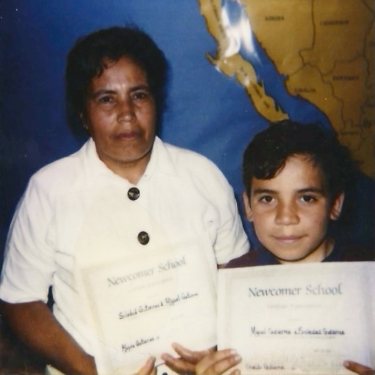
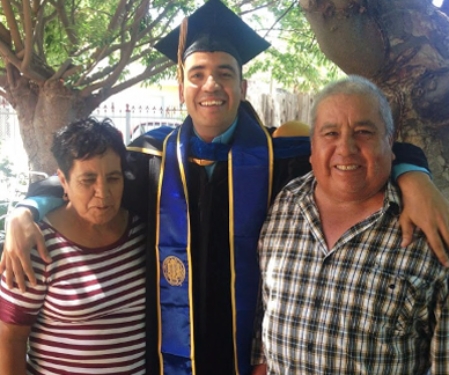
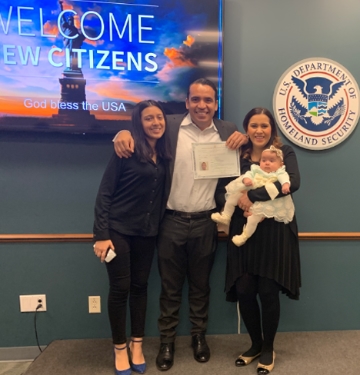
From left: Osvaldo and his mother in elementary school in Sacramento, Osvaldo and his parents at his graduation from UCLA, Osvaldo with his wife and children at his naturalization ceremony.
Luckily, I was enjoying chemistry and decided to pursue a PhD in that field. Completing a PhD while being undocumented was not easy to say the least. What I love about chemistry is the potential for impact it has on humanity. I lost my mom to breast cancer as I started my career as assistant professor but during that time, two molecules, morphine and taxol, changed her life. The taxol extended her life long enough to have one last dance with me at my wedding. The morphine allowed her to close her eyes and sleep in moments of great pain. I feel a responsibility to this country that gave me so much to continue to work hard and contribute more to society.
After several years in academia, and now a US citizen, I rejoined UCLA as a full time faculty member in my old department. The research in my lab focuses on combining several different areas of chemistry that traditionally were separated to develop new and sustainable ways to make medicines. Specifically, all research members in our group get training in organic and inorganic synthesis, spectroscopy, and computational chemistry. Ultimately, we hope to develop new catalysts that can be used by the pharmaceutical industry to lower the cost of medicines.
Osvaldo with members of his lab, which combines computational and experimental approaches to advance our understanding of organic/organometallic reaction mechanisms.
But my mission here is about much more than teaching and research. I am also the Chicano Studies Research Center inaugural Hispanic-Serving Institution STEM Faculty Director. It is my job to champion STEM initiatives that will support students here going through the same experiences I did. We have a program running every Friday that provides ~10 undergraduates from community college hands-on computational research experience. Some of these students will eventually come to our lab for hands-on research. And this program also helps members of my research group become better teachers and mentors themselves.
Looking back on my path to where I am now, I’m grateful for all the experiences I have had. Rancho Los Prietos taught me the importance of hard work, getting up early, never complaining, and keeping an eye out for opportunities – you might call it hustle. UCLA taught me how to tackle some of the world’s biggest problems and the culture of inclusivity gave me the confidence to change the world.
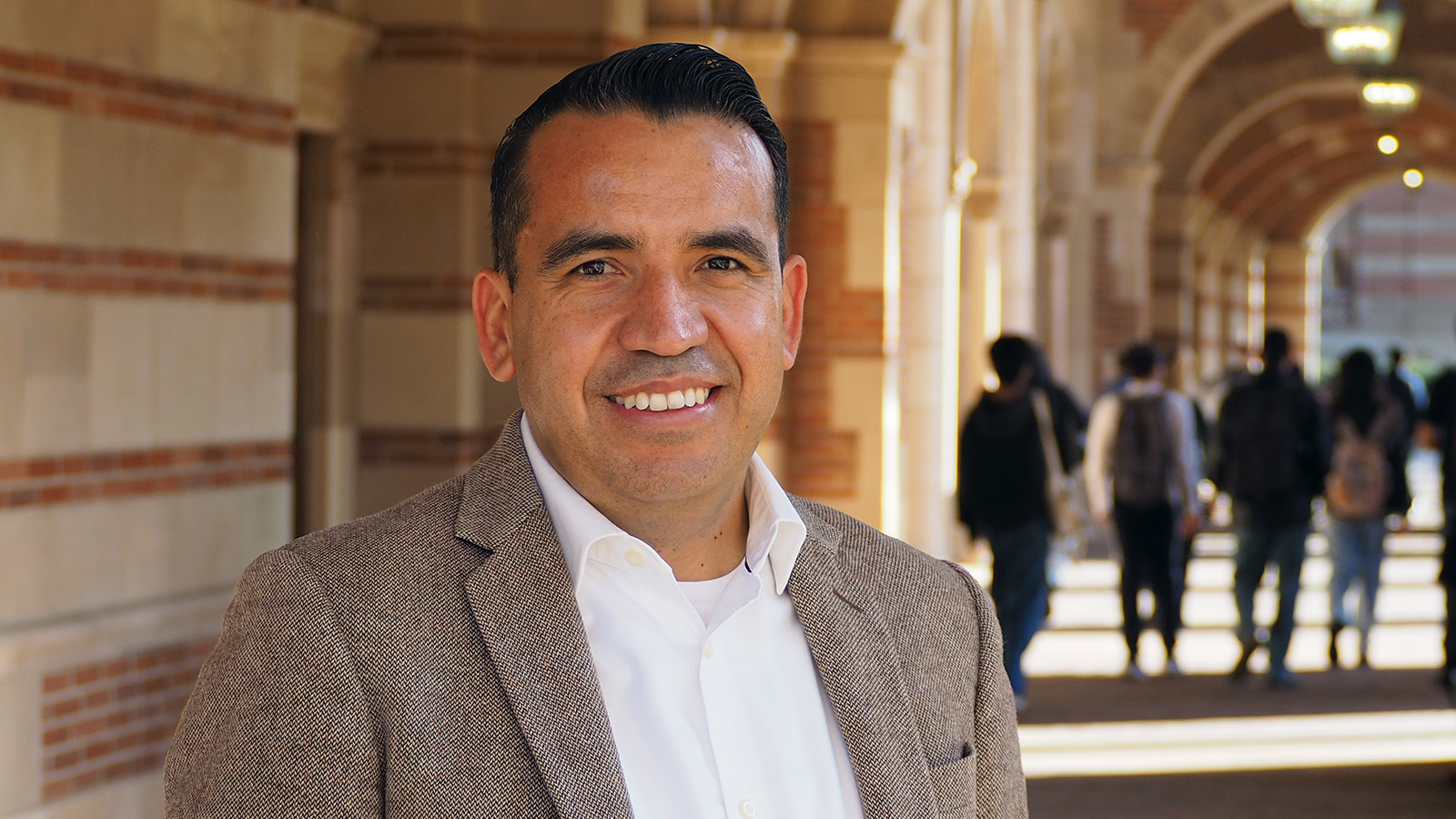
UCLA taught me how to tackle some of the world’s biggest problems and the culture of inclusivity gave me the confidence to change the world.
I would like to end by speaking directly to any students who have had the attention span to read my whole story. These are some things I want you to remember. Be prepared to question why you are doing something and if it is right for you. If something out of your control changes your life, be prepared to change with it. Understand that you don’t always know the challenges other people are facing – even the students sitting right next to you in class. Putting yourself in other people’s shoes isn’t just the right thing to do, it will help make you a better person and better student. Finally, remember, you are at UCLA! A university where you can be anything you want to be. And if you still need to talk to someone, my door is always open.
